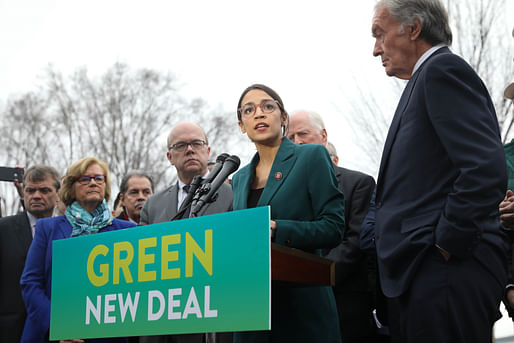

In contrast to the big, privately owned banks in the U.S., public banks are owned by government entities; theoretically, they could operate at the city, state, or federal level. They’re funded with revenue from constituent taxes or from the federal government, and as such, are intended to be accountable to public interest and demands, as opposed to big private banks, which are beholden to shareholders. — Fast Company
Critics of the Green New Deal often decry that the transformative effort aimed at aggressively decarbonizing the American economy will be expensive to pull off.
The answer, according to a report in Fast Company, could lie in how preliminary Green New Deal legislation is written. The initial Green New Deal legislation forwarded by Representative Alexandria Ocasio-Cortez and Oregon senator Ed Markey reads in part: "Providing and leveraging, in a way that ensures that the public receives appropriate ownership stakes and returns on investment, adequate capital (including through community grants, public banks, and other public financing), technical expertise, supporting policies, and other forms of assistance to communities, organizations, federal, state, and local government agencies, and businesses working on the Green New Deal mobilization."
Some experts argue that increasingly-popular public banking initiatives could provide a sustainable pathway for funding Green New Deal initiatives by creating stores of funds that could be tapped into as needed for publicly-funded projects.
3 Comments
lmfao.
Don't cry for me Argentina er....Venezuela
AOC is on the right track.
Block this user
Are you sure you want to block this user and hide all related comments throughout the site?
Archinect
This is your first comment on Archinect. Your comment will be visible once approved.